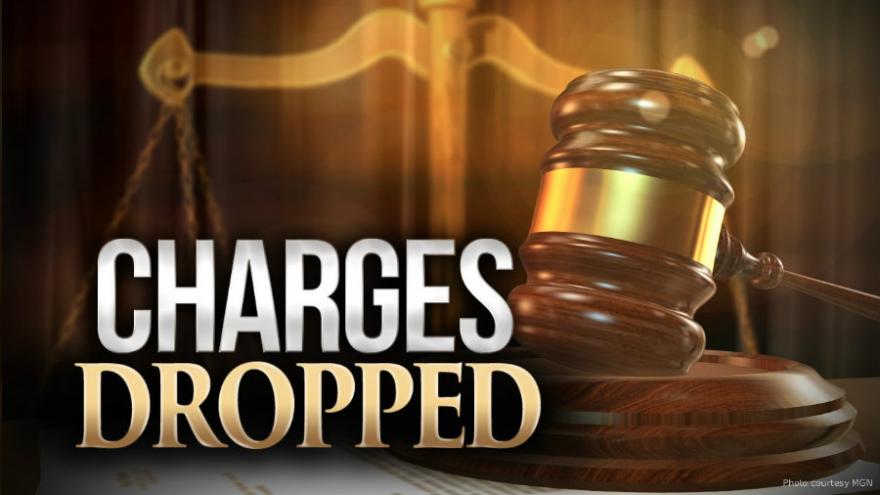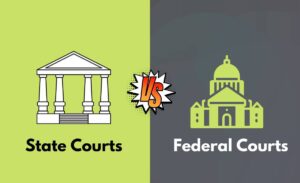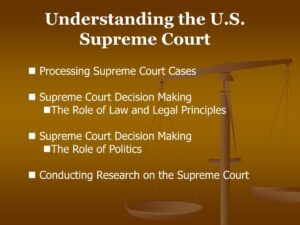What Happens if Charges are Dropped Before Court Appearances?
In the realm of criminal justice, the possibility of charges being dropped before court appearances can evoke a mix of curiosity and confusion. The legal landscape can be complex, with various factors influencing the outcome of such situations. If you find yourself wondering about the scenarios where charges might be dropped and how this process unfolds, you’ve come to the right place. This article aims to shed light on the intricacies of dropped charges and provide insights into the pertinent aspects.
How to Get Charges Dropped Before Court Date
Understanding the Legal Process
Before we dive into the specifics of getting charges dropped, it’s important to understand the legal process. Knowing what to expect can help you make informed decisions and navigate the system more effectively. In this section, we’ll cover the basic steps of the legal process.
Arrest and Booking
The legal process typically begins with an arrest. When you’re arrested, you’ll be taken to a police station or jail for booking. During booking, your personal information will be recorded, and you’ll be photographed and fingerprinted. You may also be searched, and your personal belongings may be confiscated.
Initial Appearance and Arraignment
After booking, you’ll have an initial appearance before a judge. At this hearing, the judge will inform you of the charges against you and set bail if applicable. You’ll also be given a court date for your arraignment. At the arraignment, you’ll enter a plea of guilty or not guilty.
Pretrial Hearings
After the arraignment, there may be several pretrial hearings to determine the admissibility of evidence and other legal matters. These hearings can be an opportunity for your attorney to argue for the charges to be dropped.
Trial
If the case goes to trial, a jury will be selected, and evidence will be presented by both sides. The jury will then deliberate and reach a verdict.
Overview of Criminal Charges Being Dropped
When individuals face criminal charges, there’s a possibility that those charges could be dropped even before their scheduled court date arrives. This can happen due to several reasons, some of which include:
- Insufficient Evidence: If the evidence gathered against the accused is deemed insufficient to sustain the charges, either the judge or the prosecutor can opt to drop the charges. Insufficient evidence undermines the case’s viability.
- Mistaken or False Identification: If the accused can prove that they were wrongly identified as the perpetrator, the charges may be dropped. Mistaken identity can significantly weaken the case.
- Statute of Limitations: Charges may be dropped if they are brought outside the specified statute of limitations. Once this time period has elapsed, prosecution becomes legally untenable.
- Improper Search or Arrest: If evidence was obtained through an improper search or an arrest without probable cause, the charges can be dropped. Adhering to legal protocols is crucial in maintaining the validity of charges.
- Uncooperative Witnesses: Witnesses unwilling to testify or provide evidence can hinder the prosecution’s case. In such instances, charges might be dropped due to lack of supporting testimony.
- Prosecutorial Discretion: Prosecutors hold the authority to drop charges if they believe it serves the interest of justice. They might do so to avoid pursuing cases with weak chances of success.
How to Know If Charges Were Dropped
Discovering whether the charges against you have been dropped is a pivotal point in your legal journey. You can find out through the following means:
- Notification: You might receive written notification from the prosecutor or the court confirming that the charges have been dropped. Your defense attorney could also communicate this information to you.
- Online Resources: Some states provide statutes and case updates on their official websites. You can check these platforms for updates on your case.
- Direct Inquiry: Contacting the courts or the prosecutor’s office can yield information about the status of your charges. They will be able to inform you if the charges have been dropped.
Dropping Charges Before Court
Yes, it is possible to drop charges against someone before going to court. Doing so can benefit both parties involved:
- Defendant Benefits: The accused can avoid the lengthy and costly process of a criminal trial, which encompasses various expenses, potential jail time, fines, and the creation of a criminal record.
- Prosecutor Benefits: Dropping charges can help prosecutors avoid challenges to the charges, gathering of exonerating evidence by the defense, and weakening of their case. This approach might be taken to maintain the strength of their position.
Steps to Get Charges Dropped
Now that we’ve covered some of the reasons charges may be dropped, let’s take a look at the steps you can take to increase your chances of success.
Hire a Criminal Defense Attorney
The first and most important step is to hire a criminal defense attorney. An experienced attorney can review your case and advise you on the best course of action. They can also represent you in court and negotiate with the prosecution on your behalf.
Review the Evidence
Your attorney will review the evidence against you and look for weaknesses in the prosecution’s case. They may be able to argue that the evidence was obtained illegally or that it’s unreliable.
Negotiate with the Prosecution
Your attorney may be able to negotiate with the prosecution to have the charges dropped. This may involve agreeing to plead guilty to a lesser charge or providing information that leads to the arrest of another suspect.
File a Motion to Dismiss
If your attorney believes there are grounds to have the charges dismissed, they can file a motion to dismiss with the court. This is a legal document that outlines the reasons why the charges should be dropped. The judge will review the motion and decide whether to grant it.
Attend all Court Appearances
It’s important to attend all court appearances, even if you don’t think anything will happen. Missing a court date can result in a warrant being issued for your arrest and can make it harder to get charges dropped.
Stay Out of Trouble
While your case is pending, it’s important to stay out of trouble. Avoid any behavior that could lead to additional charges or make you look bad in court.
Why prosecutors might drop charges before going to court
Several reasons can lead to charges being dropped before the court process commences:
Lack of Evidence
One of the most common reasons charges are dropped is a lack of evidence. If the prosecution doesn’t have enough evidence to prove their case, they may drop the charges rather than risk losing at trial.
Improper Arrest or Search
If your arrest or search was conducted improperly, the evidence gathered may be inadmissible in court. If this is the case, the prosecution may not have enough evidence to move forward with the case.
Witness Unavailability
If a key witness is unavailable to testify, the prosecution may not have enough evidence to prove their case. In some cases, this may lead to charges being dropped.
Cooperation with Law Enforcement
In some cases, cooperating with law enforcement can lead to charges being dropped. This may involve providing information that leads to the arrest of another suspect or agreeing to testify against someone Else
Mistaken or False Identification
Wrongful identification of the accused can lead to dropped charges. An incorrect or unreliable identification can undermine the case’s credibility.
Prosecutorial Discretion
Prosecutors can exercise discretion and drop charges if they believe it’s in the interest of justice to do so. This might involve weighing the strength of the case and the available evidence.
Can Charges Get Dropped During Court Processes?
Indeed, charges can be dropped during court proceedings, often as a result of new evidence emerging or a viable defense coming to light. The prosecutor or district attorney holds the authority to drop charges in such scenarios. This can occur when the prosecution cannot prove the defendant’s guilt beyond a reasonable doubt due to insufficient evidence.
Can The Victim Drop Charges?
While the victim cannot unilaterally drop charges against someone, they can file a petition to do so. Ultimately, the decision lies with the court, which will determine whether the charges should be dropped based on the presented information.
Can Charges Be Dropped After Indictment?
Yes, charges can be dropped after an indictment, which is a formal accusation of committing a crime. Reasons for dropped charges post-indictment include a lack of evidence, the presentation of new evidence that exonerates the accused, or a decision by the prosecution to dismiss the case.
Can Charges Be Dropped At An Arraignment Hearing?
Indeed, charges can be dropped at an arraignment hearing, which is the defendant’s first court appearance in a criminal case. Even if charges are slated to be dropped, an arraignment hearing might still take place for legal proceedings and the judge’s assessment of the situation.
Can Misdemeanor Charges Get Dropped?
Misdemeanor charges can indeed be dropped, but certain conditions apply. Strong cases against the defendant, a criminal history, or the severity of the crime can impact the decision to drop misdemeanor charges.
Can A Felony Charge Be Dropped?
Yes, felony charges can be dropped under certain circumstances. The strength of the case, the defendant’s criminal history, the victim’s wishes, and the nature of the crime are factors that influence the decision to drop felony charges.
How To Get Charges Dropped Before Court
Getting charges dropped before the court date involves various strategies:
- Negotiated Plea Agreement: Parties can agree outside of court to reduce or drop charges.
- Prosecutorial Discretion: Prosecutors can choose to reduce or drop charges.
- Motion to Dismiss: The defense can file a motion to have the charges dismissed.
- Grand Jury No-Bill: A grand jury may decide not to pursue the charges.
- Statute of Limitations: Charges can be dropped if the time limit for pressing charges has expired.
How To Get Felony Charges Dropped
Dropping felony charges is more intricate, often involving negotiation and legal maneuvers. A defense lawyer can work with prosecutors to reduce or drop charges, considering options like plea bargains, dismissal due to lack of evidence, charge reduction, pre-trial diversion, and expungement.
How To Get A Prosecutor To Drop Charges
An experienced defense lawyer can play a pivotal role in convincing a prosecutor to drop charges. Negotiating with the prosecutor and presenting compelling arguments can lead to charges being dropped based on reasons such as insufficient evidence, violation of rights, or viable defense strategies.
The Outcome Of Charged Getting Dropped
When charges get dropped, the defendant is released from facing those charges, and their case is no longer pursued. However, it’s important to note that charges that have been dropped may still appear on criminal records, albeit marked as “dismissed” or “dropped.”
Can Charges Be Reinstated After Being Dropped?
Yes, charges can be reinstated even after they have been dropped. This may occur if new evidence comes to light that changes the prosecution’s perspective on the case.
Wrapping Up
Navigating the landscape of dropped charges before court appearances involves understanding the nuanced legal processes at play. Whether charges are dropped due to insufficient evidence, mistaken identity, or prosecutorial discretion, it’s essential to engage the services of an experienced criminal defense lawyer to guide you through the complexities and secure the best possible outcome for your case.
Frequently Asked Questions (FAQs)
Can dropped charges be expunged from a criminal record? Yes, in many cases, individuals can seek expungement for dropped charges, helping them achieve a cleaner slate.
If charges are dropped, can they be brought back at any time? Charges dropped due to insufficient evidence can potentially be refiled if new evidence emerges.
Can a judge dismiss charges without any valid reason? No, judges must have legal grounds, such as lack of evidence or rights violations, to dismiss charges.
How can a criminal defense lawyer assist in getting charges dropped? A skilled lawyer can analyze the case, identify weaknesses, negotiate with prosecutors, and ensure your rights are protected.
Are plea deals a common way to get charges dropped? Yes, plea deals often lead to charges being dropped or reduced, providing a more expedient resolution to cases.
Can I get felony charges dropped?
Felony charges are more serious, but it is sometimes possible to get them dropped pre-trial if you have a strong defense. An attorney can help negotiate dismissal if there are legal issues with the case or evidentiary problems. Diversion programs are rarely offered for felonies.
What if I already pled guilty?
If you already entered a guilty plea, getting the charges dropped becomes very challenging. You would need to file a motion to withdraw your guilty plea and prove it was involuntary or unconstitutional. This requires showing serious defects in the plea proceedings.
Will hiring a private lawyer guarantee charges will get dropped?
There are no guarantees, but skilled private attorneys have the time and experience to pursue the best legal strategies for dismissal. Public defenders typically have high caseloads. A private lawyer can devote focused effort to your defense.
Is it possible to get DUI charges dropped?
It is possible but challenging because DUIs have more clear-cut evidence like BAC levels. An attorney could try to challenge the traffic stop, breathalyzer results, or argue you were misidentified as the driver. Diversion programs may be an option for first-time DUI offenders.
How much does it cost to get charges dropped?
The cost varies based on the lawyer’s experience, case complexity, and time invested. Simple misdemeanors may cost $2,000-$5,000. Felonies or complex cases often range from $5,000 to over $20,000 if they proceed to trial.






